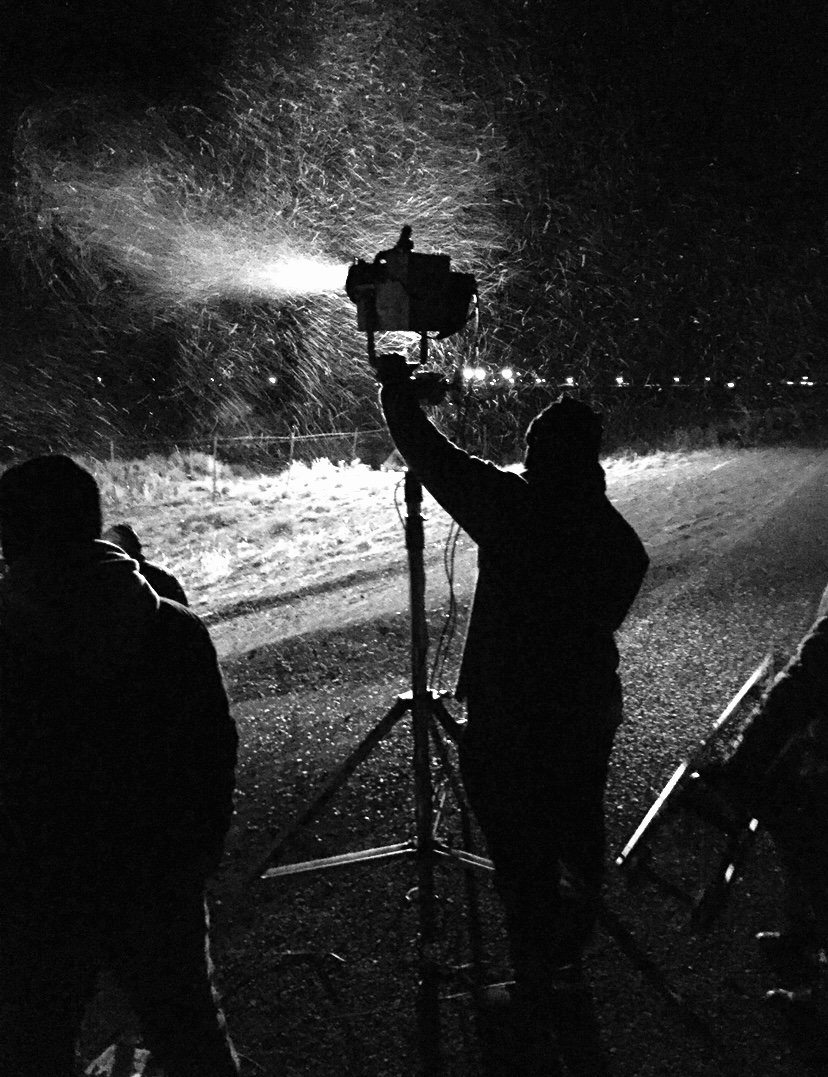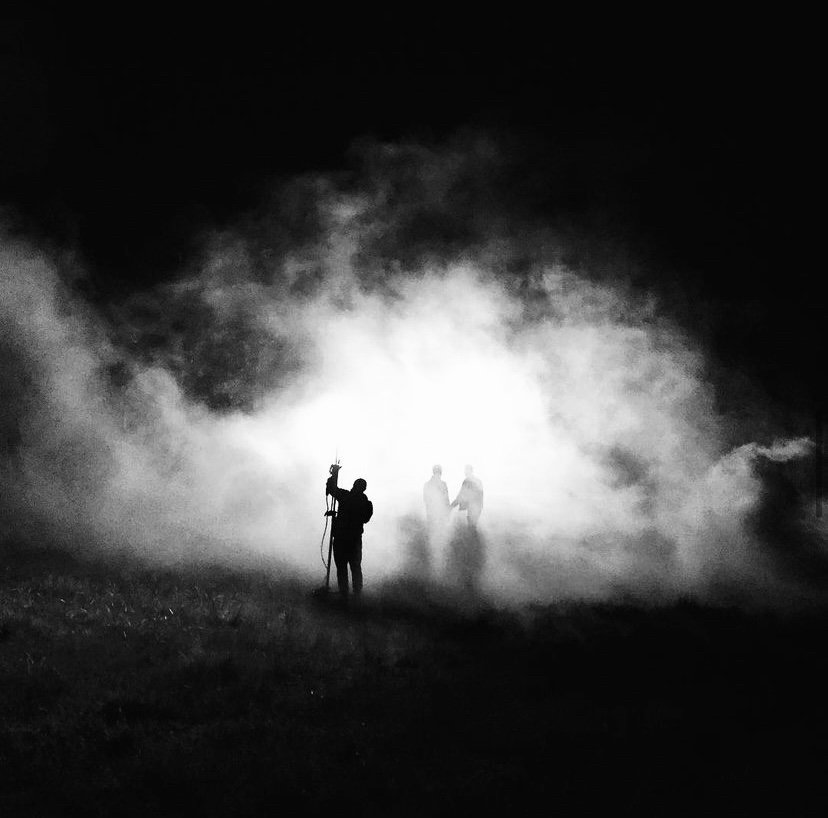Jessica (Jess) Dickson is an anthropologist of film and media and their industries.
She has a passion for science fiction, which persistently works its way into her research, teaching, and writing.
Her areas of interest include media anthropology, virtual reality, cyborg subjectivity, postcolonial urbanisms, and Global Hollywood in South Africa.
Bio
Jess currently holds a postdoctoral fellowship in the Department of Anthropology at Florida Atlantic University.
She completed her Ph.D. in African Studies at Harvard University in 2021 and became an Academy Fellow at The Harvard Academy for International and Area Studies in 2021-2022.
Along the way, she has intermittently lived, worked, and conducted ethnographic fieldwork in South Africa for nearly 15 years.
After receiving her B.A. in anthropology at the University of Illinois in her hometown of Urbana-Champaign, she moved to South Africa where she completed a Master's of Social Science in anthropology at the University of Cape Town.
While conducting research on ‘township tourism’ in South Africa in the lead-up to the 2010 FIFA World Cup, she turned her attention to the newly built Cape Town Film Studios intended to attract big-budget international film and television production. Since then, she has followed the expansion of ‘Global Hollywood’ into South Africa with a particular interest in the social worlds of the film-workers who repeatedly transform South African land- and cityscapes into Euro-American settings for international media production. Her work, more broadly, explores the political and symbolic economies of digital media production as it shapes global imaginaries, material realities, and the experiences of local labor.
Jess’ research has been funded by the Fulbright-Hays Doctoral Dissertation Research Abroad Fellowship, The Frank Knox Memorial Traveling Fellowship, and The Foreign Language and Area Studies Fellowship.
Publications
Dickson, J.L. (forthcoming, 2023). COVID Variants and Colonial Remnants in South African Media Industries. In Unmasked: Media Industries in Crisis, Mayer, V., Banks, M., and Lavie, N. (eds.) Routledge
Dickson, J.L. (2021). Making Virtual Reality Film: An Untimely View of Film Futures from (South) Africa. In Anthropology, Film Industry, Modularity, Caton, S. and Rossoukh, R. (eds). Duke University Press.
Dickson, J.L. (2016). Do Cyborgs Desire Their Own Subjection? Thinking Anthropology with Cinematic Science Fiction. The Bulletin of Science, Technology & Society, 36(1), 78-84
Dickson, J.L. (2014). Reading the (Zoo) City: the social realities and science fiction of Johannesburg. The Johannesburg Salon, Johannesburg Workshop in Theory and Criticism, Mbembe, A. and Jones, M. (eds). jwtc.org.za https://pdfs.semanticscholar.org/88c6/4dea0aae5ae943543b946dc3c2624ded2920.pdf
Dickson, J.L. and Spiegel, A.D. (2014). South African Anthropology in Conversation: An Intergenerational Interview on the History and Future of Social Anthropology in South Africa. Bamenda, Cameroon: Langaa Research & Publishing CIG
Dickson, J.L. (2012). Revisiting ‘township tourism’: multiple mobilities and the re-territorialisation of township spaces in Cape Town, South Africa. Anthropology Southern Africa, 35(1-2), 31-39
Working Papers
Prop Economies: new views on gifts, commodities, and ‘the fetish’ from Global Hollywood
Apocalypse Capital: world-building with ruins in international film production
Producing the Film City: people as studio infrastructure in Cape Town
Digital Extraction and Haunted Matter, or: how to make movies with ghosts
The Queer Lives of Movie Props
Teaching
Courses Taught
-
This course is organized around two key questions:
1) How have anthropologists used film as a method of ethnographic practice (i.e. to study and represent culture)?
2) What does it mean to study film (as an art form and an industry) anthropologically?
-
This course explore key concepts, themes, and debates in the field of sociocultural anthropology through popular Sci-Fi literature, film, television, and videogames. Discussion topics include (post)colonialism, ethnicity and race, sex and gender, alienation and (post)modernity, radical alterity, cyborgs and (post)humanism, Afrofuturism, and the variable politics of (post-)apocalyptic imaginings. Students are also introduced to some of the most pressing questions driving anthropological inquiry today, as well as learn how one of the most popular genres in the 21st century draws on anthropology to imagine new worlds and to re-imagine this one.
-
An introductory course to cultural anthropology. Topics include language, kinship, economic and political systems, ethnicity and race, gender and sexuality, religion, art and media, social movements, social stratification and inequality, colonialism and post-colonialism, nationalism, modernity and post-modernity, globalization, deindustrialization, climate change, science and emerging technologies, and wraps up with an introduction to the anthropology of outer space.
-
A graduate seminar organized around the theme ‘Futurity’
Courses in Development
-
A course covering key concepts, theories, and debates in anthropological approaches to the study of exchange and economic systems. This course will provide a survey of 20th and 21st century scholarship in economic anthropology and conclude with close readings of recent ethnographies of capitalism and attention to recent writing on the future of work.
-
This course will explore key themes and recent debates in anthropological approaches to the study of science and technology, with an emphasis on emerging visual technologies, AI, and the social worlds of tech industries.
-
This course will examine the role of visual culture in shaping and contesting collective world views, historical discourse, and socio-economic and political power in South Africa from apartheid to the present. Students will be introduced to South African film, television, photography, painting, architecture, advertising, magazines, video games, monuments, and immersive media, as well as scholarship that puts these visual objects and events into social and historical context.
-










